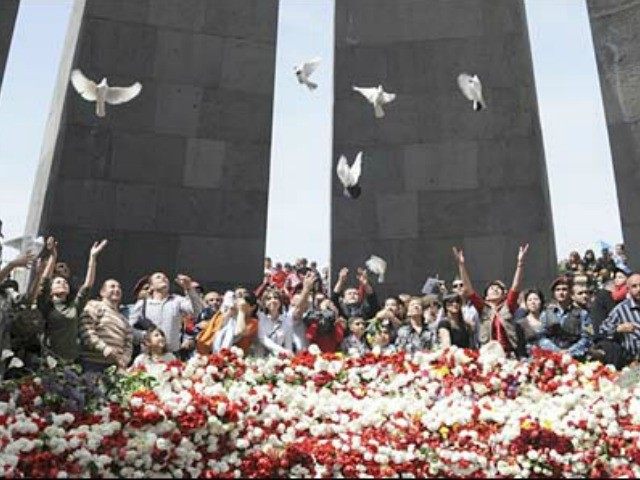Pope Francis took a brave leap forward on Sunday, risking backlash from the Turkish government, when he spoke out against the Armenian genocide that took place almost 100 years ago at the hands of Ottoman Turks.
While his words provoked Turkish anger and prompted Turkey to recall its ambassador to the Holy See and summon the Vatican’s ambassador in Ankara to condemn the Pope’s remarks, members of California’s over 200,000-strong Armenian community rejoiced at his courage to name and condemn the genocide.
“As far as the Armenian American community is concerned, the pope has taken a courageous stand despite the threats from the Republic of Turkey,” Glendale Mayor Zareh Sinanyan told the Los Angeles Times. His sentiment was echoed by fellow Armenian-American Rob Saroyan, who told the Fresno Bee, “As an important spiritual leader in the world, this recognition (of the genocide) means a lot to humanity. It’s not just Armenians, but everyone who suffers or is persecute.”
Pope Francis’s statements at the Vatican were delivered just two weeks shy of the 100-year anniversary marking the start of “the first genocide of the 20th century,” in which over 1.5 million Armenians were executed. “The remaining two were perpetrated by Nazism and Stalinism,” Francis said.
Still, the United States’ close relationship with Turkey, in addition to Turkey’s membership in NATO (North Atlantic Treaty Organization), have discouraged the U.S. from recognizing the genocide because Turkey’s government does not recognize the Armenian genocide.
“I hope that the pope’s words will inspire our president and Congress to demonstrate a like commitment to speaking the truth about the Armenian genocide and to renounce Turkey’s campaign of concealment and denial,” Rep. Adam Schiff (D-Burbank) said, in a statement from his office that was a acquired by the Times.
Mark Shirin, like many Armenians within the United States, said he is also upset at the U.S. government for not officially recognizing the Armenian genocide.
“The next step in this process is asking for reparations–demands for lands and property lost,” Shirin told the Bee. The same sentiment has been echoed by many Iranians who were forced to flee their homes and had their businesses seized by the Iranian regime following the revolution of 1979. They are hopeful that with regime change or improved U.S.-Iran relations that they may be able to regain land and assets that were unjustly taken away from them.
“Concealing or denying evil is like allowing a wound to keep bleeding without bandaging it!” Francis had said. Mayor Sinanyan said the United States’ refusal to recognize the genocide has also kept Armenians from moving on, telling the Times that without closure, there cannot be healing.
Fresno State will soon unveil a stone monument commemorating the Armenian genocide, which is believed to have begun on April 24, 1915.
Follow Adelle Nazarian on Twitter @AdelleNaz

COMMENTS
Please let us know if you're having issues with commenting.